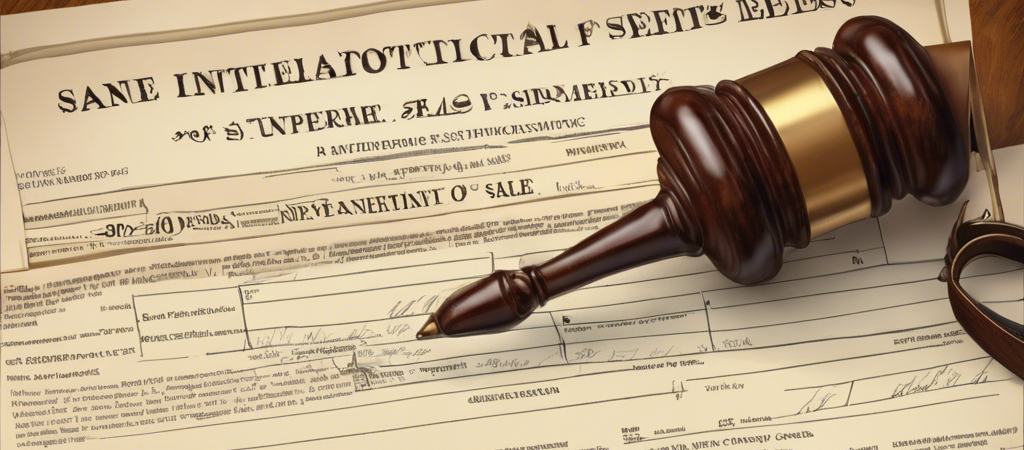In a significant ruling, the Supreme Court of India addressed the complexities surrounding the interpolation of sale deeds in the case of Kanwar Raj Singh v. Gejo. The judgment, delivered by Justice Abhay S. Oka and Justice Pankaj Mithal on January 2, 2024, clarified the legal position regarding alterations made to sale deeds after their execution but before registration. This article delves into the facts of the case, the legal contentions, and the Court’s rationale in reaching its decision.
Background of the Case: The dispute in this case arose over a piece of land measuring 71 kanals and 8 marlas. The original plaintiff, Smt. Gejo, had purchased this land based on a sale deed executed by Kanwar Raj Singh, the predecessor of the appellants, on June 6, 1975, and registered on July 23, 1975. However, before the registration, the defendant allegedly made an interpolation in the sale deed, altering the description to reflect the sale of only one-third of the land (23 kanals and 8 marlas). The plaintiff contested this change, leading to a series of legal battles.
Lower Courts’ Decisions: The Trial Court initially ruled in favor of the plaintiff, declaring that the entire land was sold as per the original sale deed. However, the Additional District Judge reversed this decision on August 23, 1984, holding that the correction in the sale deed was bona fide. Dissatisfied, the plaintiff’s legal representatives appealed to the Punjab and Haryana High Court, which restored the Trial Court’s decree, leading the defendants to approach the Supreme Court.
Supreme Court’s Analysis: The Supreme Court focused on two key issues:
- Section 47 of the Registration Act, 1908: This section states that a registered document shall operate from the time it would have commenced if registration was not required, not from the time of its registration. The Court observed that in cases where the entire consideration is paid at the time of execution, the sale deed operates from the date of its execution, irrespective of when it is registered.
- Validity of the Interpolation: The Court ruled that the unilateral interpolation made by the first defendant after the execution but before registration could not be upheld, as it was done without the knowledge or consent of the purchaser. The original sale deed, as executed, would therefore prevail.
Key Takeaways:
- Execution vs. Registration: The judgment reaffirmed that the sale is complete upon the execution of the sale deed when consideration is paid, and any subsequent registration does not alter this completion date.
- Role of Section 47: The decision highlighted that Section 47 of the Registration Act deals with the effective date of the document’s operation, not the completion of the sale.
- Protection Against Unilateral Changes: The Court provided clarity on the inadmissibility of unilateral alterations in sale deeds, ensuring protection for purchasers against fraudulent practices.
Conclusion:
The Supreme Court’s ruling in Kanwar Raj Singh v. Gejo is a landmark decision that offers crucial clarity on the legal principles governing the execution and registration of sale deeds, particularly in cases involving post-execution interpolations. This judgment reinforces several key aspects of property law:
- Protection of Purchasers’ Rights: By invalidating the unilateral changes made by the defendant after the execution of the sale deed, the Court has reinforced the principle that the rights of the purchaser, as established at the time of execution, cannot be undermined by subsequent alterations without their consent. This ensures that buyers are protected against fraudulent modifications that could otherwise dilute their ownership rights.
- Clarification on Section 47 of the Registration Act: The judgment provides an authoritative interpretation of Section 47, emphasizing that the effective date of a sale deed’s operation is tied to the date of execution, not registration. This interpretation is significant for legal practitioners and property buyers, as it underlines the importance of the execution date in determining ownership and other rights over the property.
- Role of Registration in Property Transactions: The Court’s decision delineates the role of registration, distinguishing it from the completion of a sale. While registration is essential for the legal enforceability of the document, the sale itself is deemed complete upon execution when the consideration is fully paid. This distinction is critical in understanding the interplay between the Transfer of Property Act and the Registration Act, particularly in disputes where the timing of these events is contested.
- Precedential Value: This ruling is likely to serve as a critical reference point for future cases involving disputes over the validity of alterations made to legal documents after their execution. It strengthens the judicial precedent that emphasizes the sanctity of the original terms of a contract or deed unless consensually modified.
In summary, the Supreme Court’s judgment in this case not only resolves the specific dispute between the parties but also contributes to the broader legal framework governing property transactions in India. It provides much-needed clarity and protection to property purchasers, reinforcing the principle that the sanctity of executed documents must be preserved against unauthorized alterations. This decision will undoubtedly influence how future courts address similar issues, offering a robust legal safeguard for parties in property transactions.
For any queries please email me at Info@saqibgigani.com
The above is an interpretation and expression of the author. All cases have unique circumstances and events which require to be considered before commenting on the Law. Each legal case is unique, with its own set of circumstances and facts that must be carefully considered before any legal advice or opinion can be given. Therefore, while the article aims to enhance legal knowledge and assist individuals in understanding the law, it should not be used as a substitute for professional legal advice. It is strongly recommend that you consult with a qualified legal professional to discuss your specific situation before making any legal decisions or taking any action.

